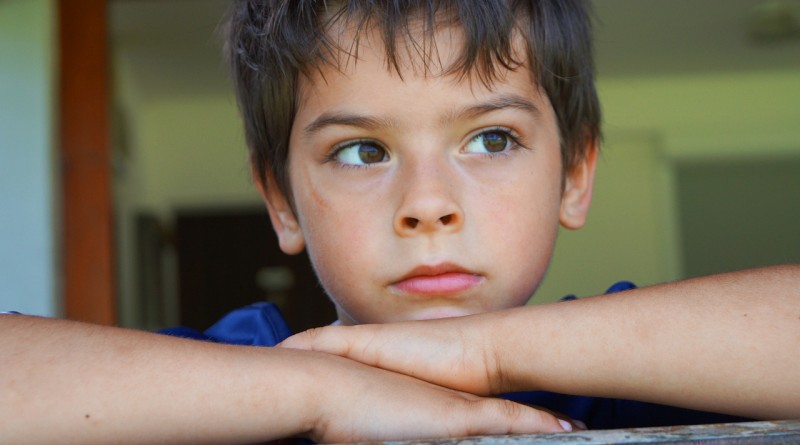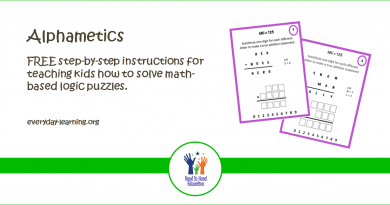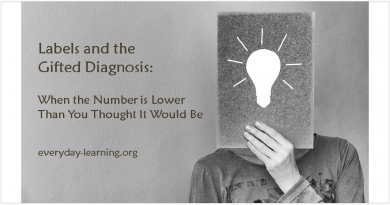Let Go of Your Bitterness

Here we go, again, with the latest all-kids-are-gifted blog pieces – written, of course, by the self-identified expert mom whose child is all of 3-years old. [If you missed it, you can read Farrah Alexander’s Maybe My Child Is Gifted. Maybe Not. Maybe It Doesn’t Matter. piece at Huffington Post.]
I know many parents in the gifted world are pissed about this post. It feeds into the current attitude guiding the no-need-for-gifted-education-because-every-child-has-talents policy making we see in some districts, including Baltimore County, where I live.
Alexander builds her case by arguing that those “special snowflakes” (yes, she went there) who made the cut-off for elementary school gifted programs really don’t go on to achieve anything much more notable than the kids who didn’t make the cut-off. As such, Alexander argues, parents need to focus on hard work rather than intelligence and stop pining for what they don’t have.
And this is where I need to say, “Ms. Alexander, please sit down and be quiet. Your bitterness over having missed the gifted program cut-off decades ago is agonizingly apparent – and it is doing more damage than you could ever realize.”
You see, I held that same bitterness about those darn gifted kids who thought they were better than everyone else. When I was younger, I never tested well, so I always missed cut-offs by literally 1 or 2 points. I craved the opportunity to think and be challenged. Instead, I got yelled out for not paying attention and not showing my work on yet another ridiculous worksheet.
By the time I got to high school, I was mad as heck that no one thought I was good enough for advanced math or APs. So, I started skipping classes. First, I went to the arcade. (Hey, it was the 80s.) Then I convinced a local college professor to let me sit in on her classes in the middle of the day for free. She agreed, as long as I promised to go back to high school and finish out the day there.
So, yeah, I know that bitterness all too well. And, I know how that bitterness matures into a self-convincingly egalitarian attitude once you have small children. Been there, done that, too.
But, that’s where my similarities with Farrah Alexander’s philosophy about gifted education end.
You see, my kids grew up. Along the way, we entered into the world of profoundly gifted. I went back to school and got an advanced degree on the topic. My views continued to grow and expand as they were informed by contemporary experience. I was able to reframe my own educational experiences in a way that allowed me to make healthier parenting choices for my own children.
For more than 21 years, I have lived, breathed, and worked in the field of gifted. My take-away?
The benefits of gifted education should never be measured in levels of achievement.
Here’s the thing, I don’t really give a rat’s patootie that researchers in Michigan found that kids identified for gifted programs didn’t score better on standardized tests than those kids who were randomly selected for the program. That single finding tells us nothing about the need for gifted education.
Spend enough time with the truly gifted child and you will discover that there are some who will purposefully put forth zero effort for these types of tests. Why? Because the kids know administrators count on their scores to bring up school averages. Yet, those same school officials refuse to provide adequate instructional services that would allow these kids to actually learn something new during the academic year.
Of course all children benefit from enriched instruction. And, yes, I agree wholeheartedly that we need to allow teachers to spend more time teaching rather than preparing for yet another high-stakes test. But, that’s a false argument for why we do not need gifted identification and special services for gifted children.
Farrah Alexander has “no doubt” that all parents can give their kids “every opportunity to succeed in life and they will be awesome”. Perhaps that may be true in her lily-white world where moms drink wine and coffee and blog for a living, but that’s not the reality I see in my everyday life.

Let me walk you through the streets of Baltimore, Ms. Alexander, and introduce you to some amazing kids who live in abject poverty. Kids who are profoundly brilliant but don’t show it in the traditional way because of the trauma of being surrounded by shootings and decades of systemic racism. These are the children who need to spend time with intellectual peers and culturally sensitive teachers who can help them fight the pressures of the streets.
Let me introduce you to the children who contemplate suicide because the very thought of spending yet another day of their academic lives sitting dejected in a classroom doing absolutely nothing is too much too bear. No, that’s not hyperbole. These are the isolated children whose very lives depend on an affirmation of the core of who they are as gifted human beings and who crave a little buddy to play with.
When you look at gifted children as simple investments that must provide a notable return, you reduce these children to nothing more than a cog in the wheel of society. You miss the very humanity that exists in each precious child that walks through the school doors each day. Worse, you deny the complex nature and set of needs that make up every student – ones influenced not just by their level of intelligence but also by their family structure, their income level, and their mental health and well being.





Yes. So much yes.
This is perfect! Thank you!!
I have been avoiding commenting on the appalling Alexander article, but your post is so clear and to the point about her misconceptions. When people write opinion pieces like that with little understanding of the issues, and get them published in widely read publications, it can do a lot of damage. Thanks for the damage-control!
Thanks for the kind words, Gail. While I can completely get behind the argument that all children would benefit from enrichment teaching and learning the value of hardwork – I think it has little to do with gifted education and is more just code for: We need to freaking change a broken education system that has a hyper focus on testing.
Well said!
Great response. I love it.
Just wanted to point out one thing: too much to *bear, not bare.
Thanks for the response, Rachel, as well as the grammar catch. That’s one of those pesky mistakes I’ve made countless times and my mind just can’t keep it straight. Maybe if I had been identified as “gifted” I would have gotten the enriched help I needed. *wink*
I was appalled at the one article. As a mom of 2 gifted individuals. My youngest is top of her class. My oldest daughter was who was tested in 2nd grade as gifted, graduated last year with her doctorate. My little one aspires to be an engineer. They didn’t have all the latest gadgets growing up. She really should have had all her facts straight before publishing. It’s just another article to muddy the gifted waters
Absolutely love. The raw reality that you spoke of is needed. Thank you